Ministers should be worried about declining civil service morale
Motivated civil servants will help ministers to deliver their priorities. Unhappy officials, on the other hand, will not.
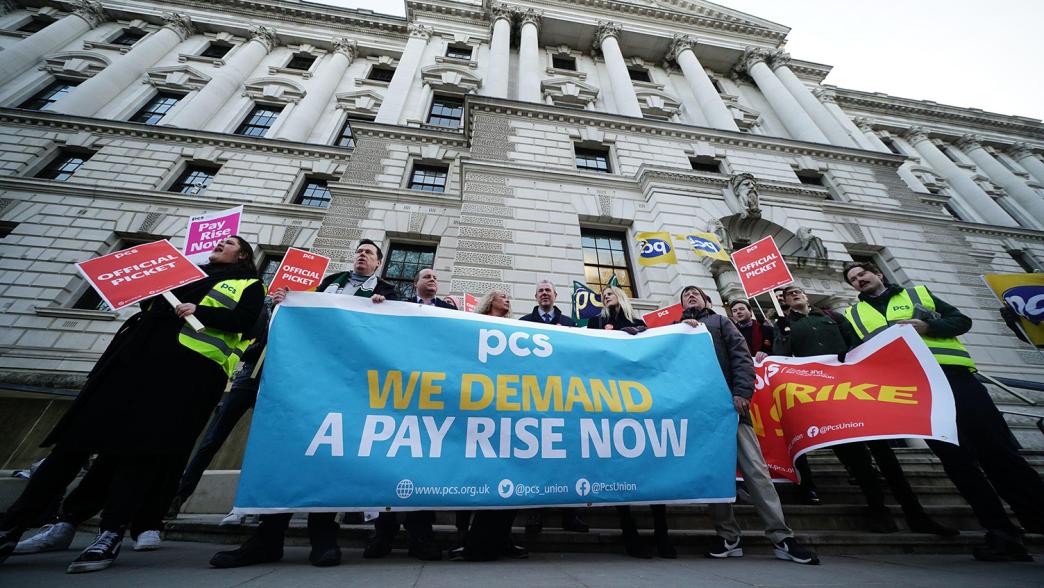
A new survey which shows declining civil service morale and anger over pay should prompt an urgent ministerial response, argue Jack Worlidge and Rhys Clyne.
Motivated civil servants will help ministers to deliver their priorities. Unhappy officials, on the other hand, will not. So the latest Civil Service People Survey, carried out each year to track officials’ attitudes to and experiences of working in the civil service, should be a cause for concern.
The 2022 survey, collated last autumn, has just been published, and it offers an insight into a particularly difficult moment for the civil service. Political turmoil and ministerial churn were causing uncertainty across government. Officials felt bruised by hostile briefing in the press, sometimes by ministers or “close friends of” them. 7 Markson T, ‘Rees-Mogg threatens to ban ‘absurd’ wellness and diversity courses’, Civil Service World, 4 July 2022, www.civilserviceworld.com/professions/article/reesmogg-to-ban-absurd-wellness-and-diversity-courses; Waterson J, ‘’Condescending’: Jacob Rees-Mogg leaves notes for WFH civil servants’, The Guardian, 23 April 2022, www.theguardian.com/politics/2022/apr/23/condescending-jacob-rees-mogg-leaves-notes-for-wfh-civil-servants And they faced a 2% pay award in the face of spiralling inflation. The latest results are worrying enough to require an urgent response.
Civil servants’ morale and working experience are deteriorating
Having risen in all but one year since 2011, the civil service’s engagement index – the People Survey’s headline indicator which tracks officials’ motivation, pride, advocacy and attachment to their organisation 8 Cabinet Office, Civil Service People Survey 2022: Technical Guide, 30 March 2023, www.gov.uk/government/publications/civil-service-people-survey-2022-results/civil-service-people-survey-2022-technical-guide – fell slightly in 2021, and fell again, more sharply, in 2022. Though it remains above 2019 levels, the continuing reversal of the positive trend is concerning and signals growing dissatisfaction among officials.
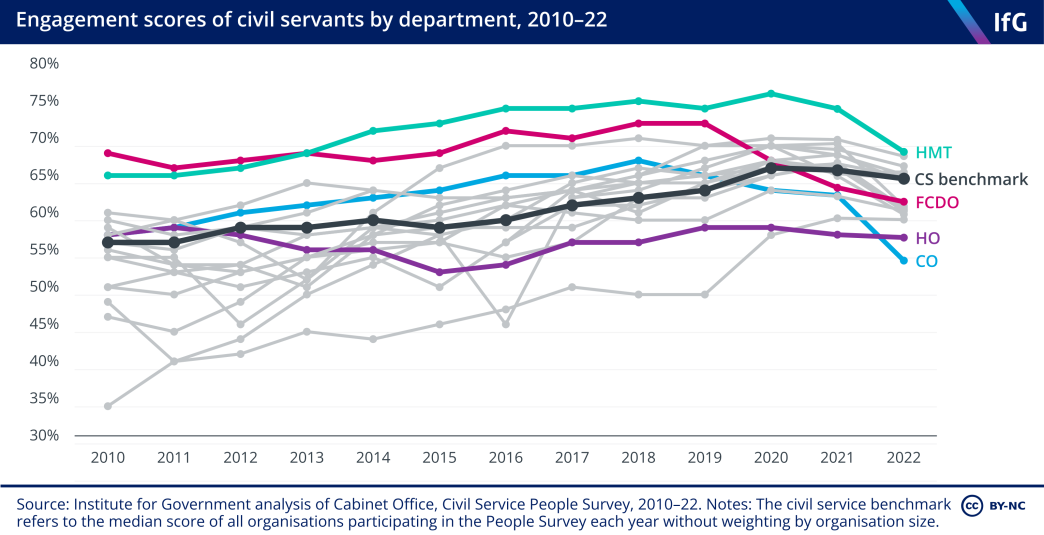
This engagement index fell in every department last year, with a particularly significant drop in the Cabinet Office – nine percentage points – which now has the least engaged workforce of any department. The department saw a fall of 11.5 percentage points in civil servants’ views of their leadership and how change is managed, while it saw the biggest departmental drop in sentiment for resources and workload, inclusion and fair treatment, and organisational objectives and purpose. Treasury staff remain the most engaged – as they have for a decade – but engagement is declining here, too.
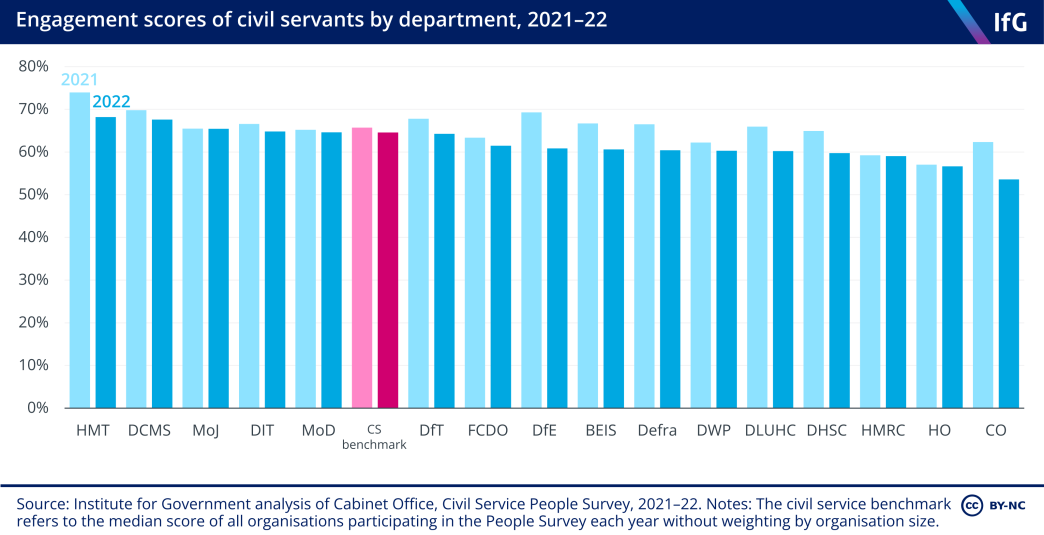
2022 also saw a notable drop of over four percentage points in civil servants’ sentiment towards the leadership of their departments and their ability to manage change. While this in part reflects the extraordinary levels of political disruption last year, it is essential that civil service leaders are able to support their teams at times of uncertainty – and especially when civil servants have been asked to set up three new departments after recent machinery of government changes.
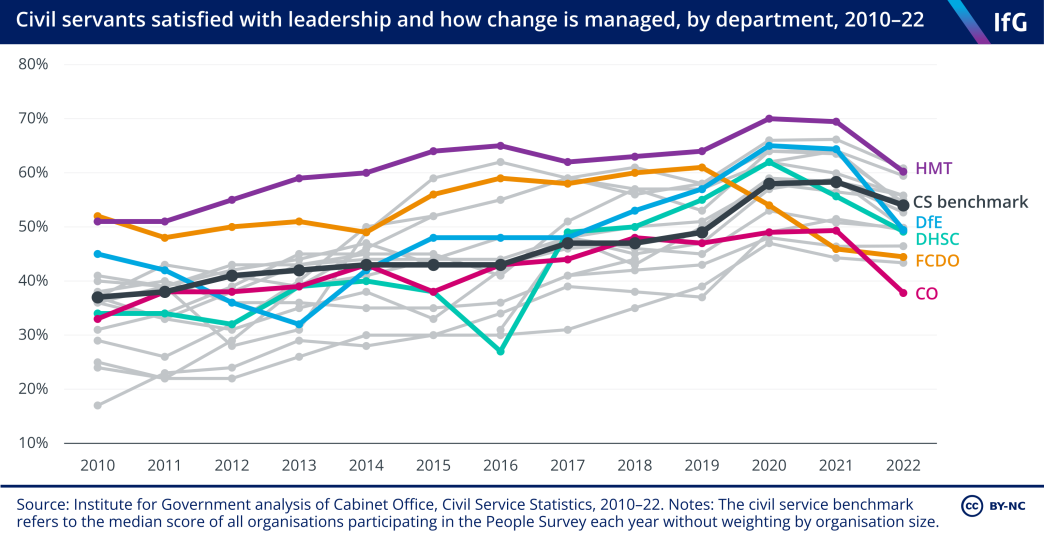
Dissatisfaction with pay is fuelling strikes and high turnover, while making the civil service less competitive
Civil servants are especially unhappy about their pay, with only around three in ten (29%) officials – a 9 percentage point drop from 2021 – responding positively to questions about their pay and benefits in 2022.
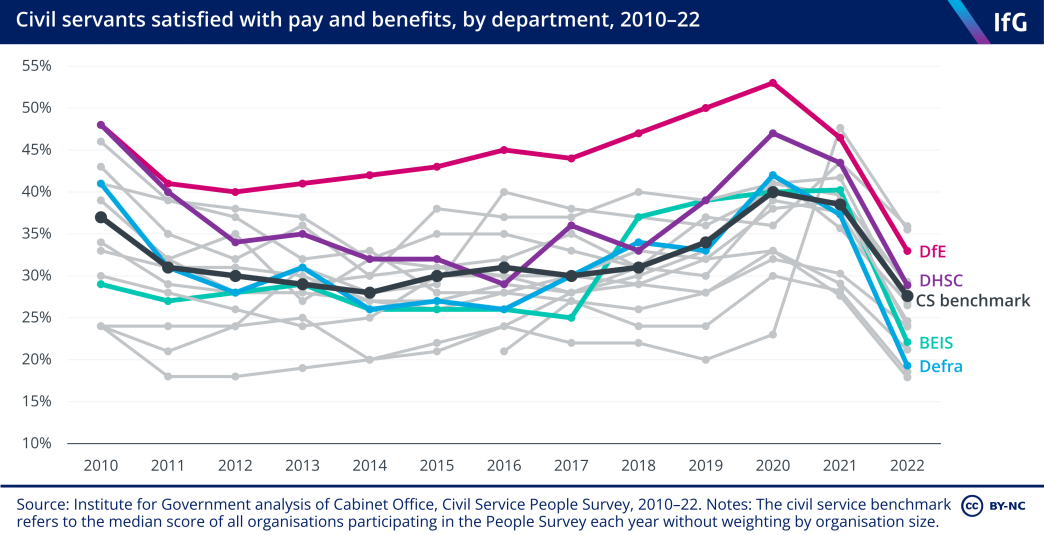
This is unsurprising. High levels of inflation meant civil service pay fell starkly in real terms in 2022, as it did across the public sector. But for civil servants this followed a decade of pay restraint – meaning that since 2010 civil service salaries have fallen in real terms by between 12% at the most junior grades and 23% at the most senior.
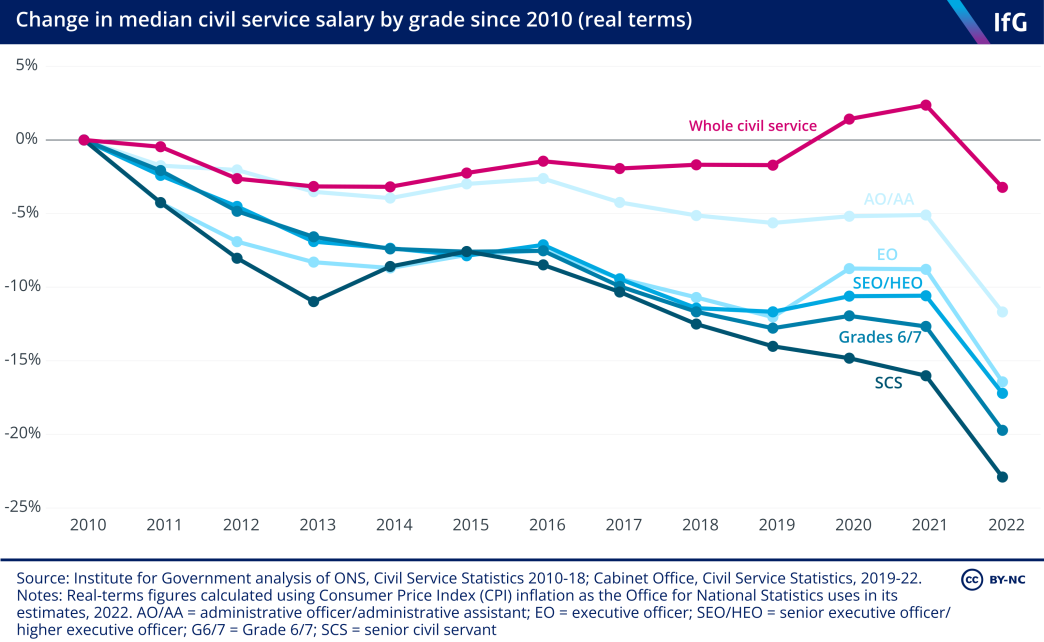
In other circumstances, this drop might have been met by a higher pay award. But amid the bleak fiscal outlook, the government has held down civil service pay even more tightly than the rest of the public sector – sticking to a 2% pay award for junior and senior officials. The result has been widespread industrial action, with more than one hundred thousand PCS trade union members planning another strike for 28 April.
This is also contributing to extremely high levels of staff turnover: 14% of officials either moved between departments or left the civil service entirely in 2021/22 – the highest level in at least a decade. And the latest data shows a further one percentage point increase in the proportion of staff who intend to leave their department in the next year, or sooner. This is an obvious problem for institutional memory, especially as the Sunak administration has little time to deliver its priorities on the economy, the NHS and asylum before the next election.
But low pay is also making external recruitment more difficult, as the civil service becomes a less attractive – and competitive – employer compared to the private sector, or other parts of the public sector where more generous settlements have been reached. If the government want to recruit – and keep – the best civil servants, revisiting pay will be necessary.
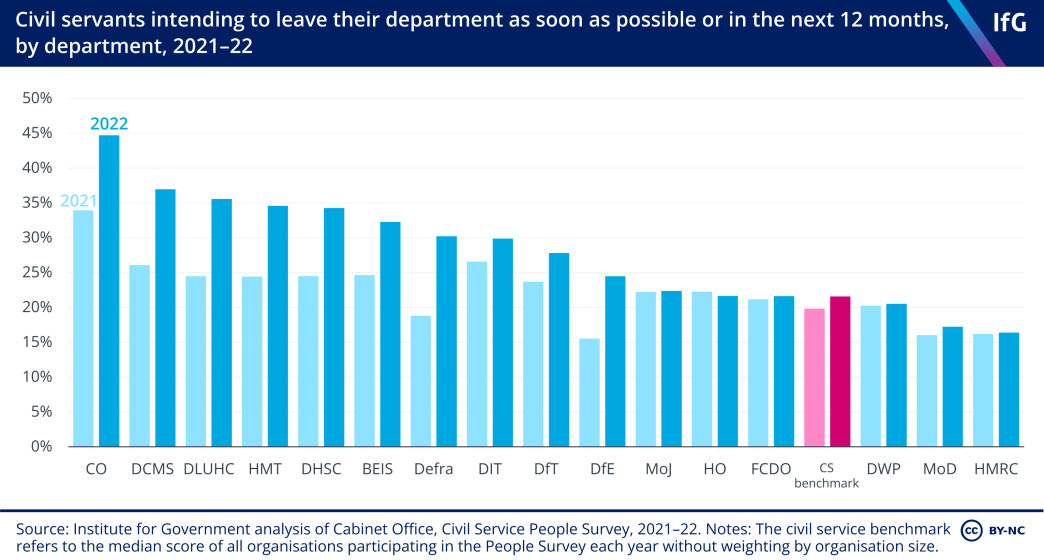
Ministers should care: a less engaged civil service is a less effective civil service
Senior civil servants ultimately have responsibility for managing and leading the workforces of their departments. Given only a third (33%) of civil servants think that “effective action” has been taken in response to the previous People Survey, it is vital that senior civil servants show – in a full, prompt and visible response – that they are taking the survey seriously.
Simon Case, the head of the civil service, and Alex Chisholm, its chief operating officer, should be particularly concerned with the poor scores of their own department – the Cabinet Office – but they also need to demonstrate leadership across the whole civil service, including ensuring civil service HR are using the findings to guide its People Strategy. This also means holding permanent secretaries to account for their responses within departments.
But ministers should also take an interest, because demotivated staff are less likely to achieve ministers’ priorities. For instance, the government’s controversial new asylum bill will need to be implemented by Home Office teams, among whom poor morale has long been an issue. Meanwhile high levels of churn in the Treasury could affect the quality of advice available to ministers trying to achieve the PM’s pledges on debt and economic growth. And the best untapped talent is less likely to apply to the civil service in the first place.
As chancellor of the duchy of Lancaster, Oliver Dowden should lead the charge on improving civil service morale. But every secretary of state should follow.
- Topic
- Civil service
- Political party
- Conservative
- Administration
- Sunak government
- Department
- Cabinet Office
- Public figures
- Oliver Dowden Simon Case
- Tracker
- Whitehall Monitor
- Publisher
- Institute for Government